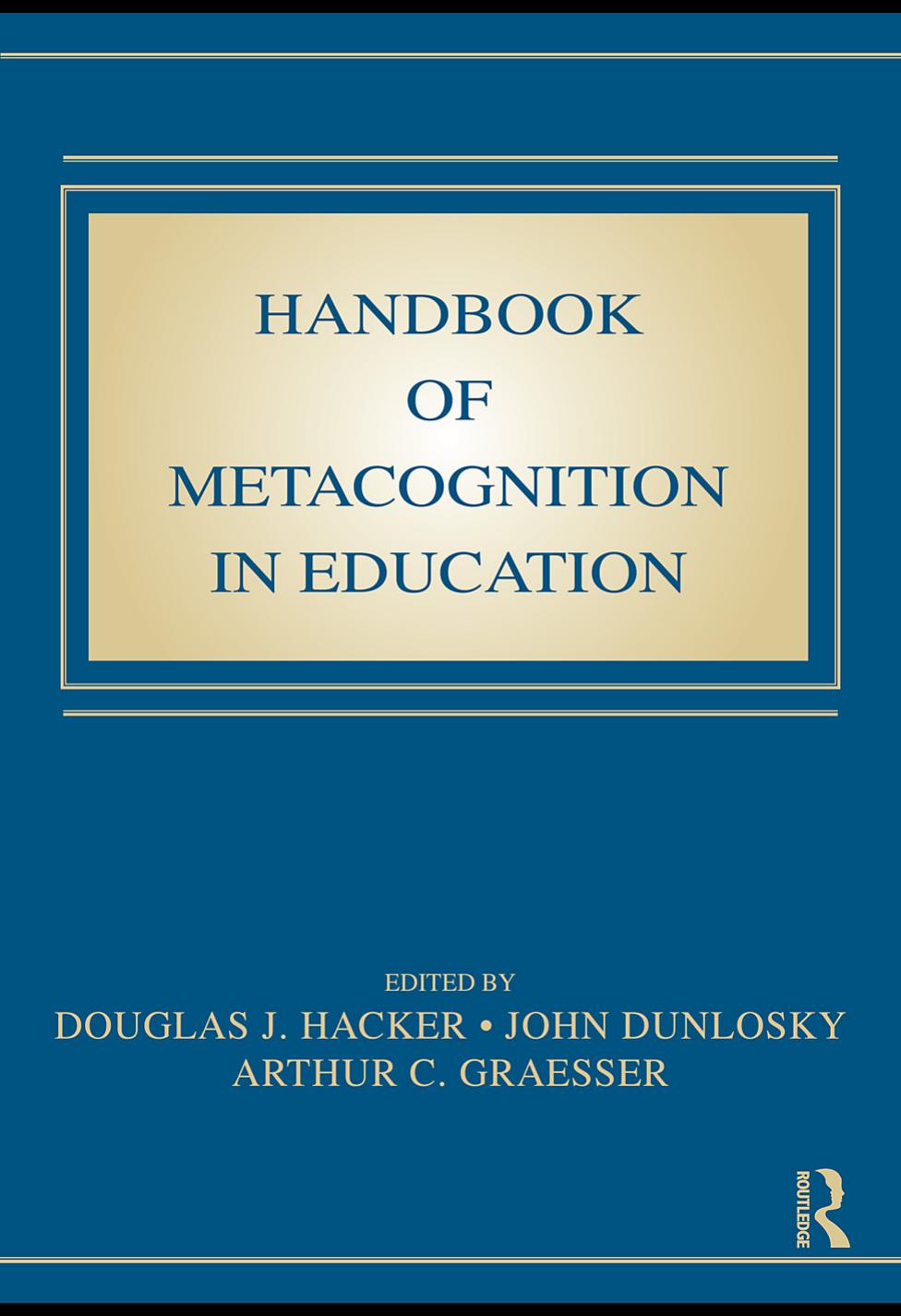

Most ebook files are in PDF format, so you can easily read them using various software such as Foxit Reader or directly on the Google Chrome browser.
Some ebook files are released by publishers in other formats such as .awz, .mobi, .epub, .fb2, etc. You may need to install specific software to read these formats on mobile/PC, such as Calibre.
Please read the tutorial at this link. https://ebooknice.com/page/post?id=faq
We offer FREE conversion to the popular formats you request; however, this may take some time. Therefore, right after payment, please email us, and we will try to provide the service as quickly as possible.
For some exceptional file formats or broken links (if any), please refrain from opening any disputes. Instead, email us first, and we will try to assist within a maximum of 6 hours.
EbookNice Team

Status:
Available0.0
0 reviews
ISBN 13: 9780805863536
Author: Douglas J Hacker, John Dunlosky and Arthur C Graesser
Providing comprehensive coverage of the theoretical bases of metacognition and its applications to educational practice, this compendium of focused and in-depth discussions from leading scholars in the field: represents an intersection of education, cognitive science, and technology; serves as a gateway to the literature for researchers and practitioners interested in one or more of the wide array of topics included; and sets the standard for scholarship for theoretical research and practical applications in this field. The Handbook of Metacognition in Education — covering Comprehension Strategies, Metacognitive Strategies, Metacomprehension, Writing, Science and Mathematics, Individual Differences, Self-Regulated Learning, Technology, Tutoring, and Measurement — is an essential resource for researchers, faculty, students, curriculum developers, teachers, and others interested in using research and theory on metacognition to guide and inform educational practice.
1 A Growing Sense of “Agency”
Part I Comprehension Strategies
2 The Role of Metacognition in Understanding and Supporting Reading Comprehension
3 The Role of Metacognition in Teaching Reading Comprehension to Primary Students
Part II Metacognitive Strategies
4 Question Generation and Anomaly Detection in Texts
5 Self-Explanation and Metacognition: The Dynamics of Reading
Part III Metacomprehension
6 Metacognitive Monitoring During and After Reading
7 The Importance of Knowing What You Know: A Knowledge Monitoring Framework for Studying Metacognition in Education
Part IV Writing
8 Metacognition and Children’s Writing
9 Writing is Applied Metacognition
Part V Science and Mathematics
10 The Interplay of Scientific Inquiry and Metacognition: More than a Marriage of Convenience
11 The Enigma of Mathematical Learning Disabilities: Metacognition or STICORDI, That’s the Question
Part VI Individual Differences
12 Context Matters: Gender and Cross-Cultural Differences in Confidence
13 Teachers as Metacognitive Professionals
Part VII Self-Regulated Learning
14 Supporting Self-Regulated Learning with Cognitive Tools
15 Effective Implementation of Metacognition
16 Self-Regulation: Where Metacognition and Motivation Intersect
Part VIII Technology
17 Self-Regulated Learning with Hypermedia
18 Interactive Metacognition: Monitoring and Regulating a Teachable Agent
Part IX Tutoring
19 Meta-Knowledge in Tutoring
20 In Vivo Experiments on Whether Supporting Metacognition in Intelligent Tutoring Systems Yields Robust Learning
Part X Measurement
21 Measuring Metacognitive Judgments
22 Sins Committed in the Name of Ecological Validity: A Call for Representative Design in Educ
handbook of metacognition in education pdf
handbook of metacognition in education 2009
metacognition pdf
handbook of metacognition
metacognition strategies pdf
handbook of metacognition in education
Tags: Douglas J Hacker, John Dunlosky and Arthur C Graesser, Metacognition, Education